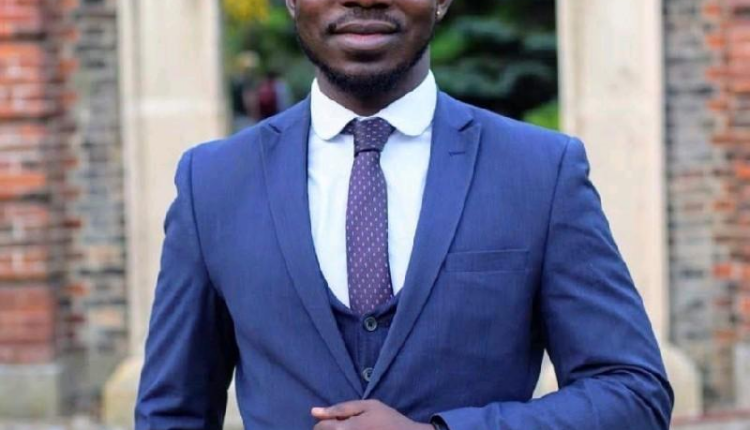Human Rights Researcher with the Centre for Human Rights of the University of Pretoria, Dr Michael Gyan Nyarko has criticised the anti-LGBTQI+ Bill currently before the Parliament of Ghana which seeks to criminalise LGBTQI+ activities, including advocacy for the community.
He described the attempt to criminalise LGBTQI+ as undemocratic as it denies a minority group its rights.
Dr Gyan Nyarko argued that while it is acceptable to disagree with the practices of the LGBTQ community, it is untenable to criminalise their activities based on disagreeing with them.
For him a democracy must not accommodate such abuse of the rights of minorities such as the LGBTQ community, insisting that Ghana will be set back if it goes passes the bill into law.
“I think a democracy should be inclusive to encompass the means of a multitude of individuals and groups and communities that other individuals disagree with. And it’s ok to disagree with such views or conduct. But the idea that because you disagree with a particular view, one must suffer a criminal consequence for it is completely overboard. It is something that a democracy should not admit,” he said on Joy FM’s Newsfile programme yesterday, Saturday February 17, 2024.
He added that since activities the LGBTQ community have no negative impact on others, the criminalisation of them is overboard and pointless.
But legislator, Samuel Nartey George, a lead promoter of the anti gay bill, defended his position noting that LGBTQ activities directly negatively impact the larger society and their is a legitimate basis to criminalise them.
Meanwhile, The Deputy Majority Leader in Ghana’s Parliament, Alexander Afenyo-Markin is proposing a change in the criminal justice system where persons found guilty of engaging in same sex activities are punished by a jail term.
As Parliament tightens the nobs of the law that criminalises same sex activities in the country, Mr. Markin advocates a system that looks beyond punishment to the possibility of social reintegration, rehabilitation, and redemption.
The Member of Parliament for Effutu Constituency of the Central Region in paper, would prefer the adoption of plea bargaining and non-custodial punishment for persons found guilty of the law.
He strongly argues, “the justification for plea bargaining and non-custodial punishment is not only a question of opinion; it is a basic responsibility of the Parliament. It is an obligation based on the values of social justice, economic pragmatism, human rights, and legislative accountability.”
“Choosing noncustodial punishments and structured plea bargaining provides a more humanitarian, financially sustainable, and globally acceptable legal system that is in line with international human rights standards,” the paper stated.
According to the paper: “This strategy also directly addresses Ghana’s prison overpopulation, which has become a human rights disaster due to extreme overcrowding. By adopting the approach proposed in this paper, Parliament can relieve pressure on Ghana’s criminal justice system, reallocate funds to areas of urgent need, and promote a more restorative rather than punitive approach to justice by implementing noncustodial sentencing.”


Comments are closed.